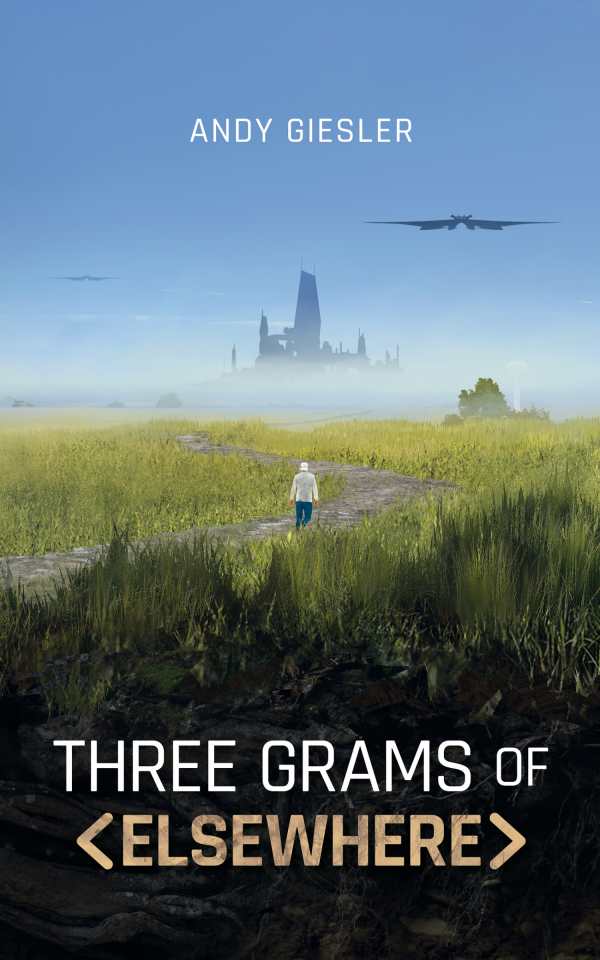Three Grams of Elsewhere
- 2023 INDIES Finalist
- Finalist, Science Fiction (Adult Fiction)
In the thrilling science fiction novel Three Grams of Elsewhere, an empath’s skills are exploited by military powers.
In Andy Giesler’s future-set science fiction novel Three Grams of Elsewhere, human minds and technology merge.
In 2099, Bibi—a retired private investigator, former military operative, and an empath—enjoys a simple, low-tech life in a retirement community. Bibi’s talents were once exploited to develop advanced military technology that measured and weaponized empathy, using empaths to control drones remotely. He is called out of retirement after a series of drone-related killings raises tensions among the nations of the former United States. As Bibi gets more involved with the investigation, he discovers the leaders’ true plans.
The novel uses multiple forms of prose and narrative points of view, including Bibi’s perspective: he addresses an unnamed, unspecified number of people five years after the events of the novel. Sometimes, this group addresses Bibi in return, resulting in narrative pauses and the delivery of explanations for previously unclear elements of the story. And excerpts from an academic text (Three Grams of Elsewhere: Fourth Edition) are used to explain how the scientific community came to understand empathy as a biological function that could be measured and utilized in practical applications.
Running alongside the central plot is another narrative involving an unidentified documentary filmmaker. Interviews with Bibi’s friends, family members, and associates are included herein; in many cases, the interviewees present Bibi in an unflattering light. A sense of mystery is generated concerning the true quality of his character; whether or not he is reliable himself is unknown. Nonetheless, his depictions of others hold interest: he observes their physical and emotional traits with robust attention to detail.
Gender identities factor into the novel’s events in noticeable way: people are greeted as Mx. regardless of their genders. Meanwhile, people who participate in a digital interface can identify traits like gender and sexual orientation with ease, while Bibi, who chooses not to be a part of that system, has to rely on body language and other cues in the course of his interactions with others.
The world building is replete with new forms of technology and innovative ideas about how people might connect and share information. It effectively juxtaposes Bibi’s personal disdain for technology to his interactions with others in his technology-reliant world. Still, several such technological advances are not explained until well into the novel, before which the resultant questions are an impediment to its progression.
In the thrilling science fiction novel Three Grams of Elsewhere, an empath’s skills are exploited by military powers.
Reviewed by
Gail Hoffer-Loibl
Disclosure: This article is not an endorsement, but a review. The publisher of this book provided free copies of the book and paid a small fee to have their book reviewed by a professional reviewer. Foreword Reviews and Clarion Reviews make no guarantee that the publisher will receive a positive review. Foreword Magazine, Inc. is disclosing this in accordance with the Federal Trade Commission’s 16 CFR, Part 255.

